It’s time for another Super Mega Important Debate, folks! This week we’re talking about Japan’s famous capsule hotels. The question is, are they cool, cheap ‘n’ cheerful places to stay, or is slipping into one like spending the night in a morgue drawer, albeit while being serenaded by an overweight businessman snoring through the night?
survey (Page 19)
One of the first things you notice when you come to Japan is how great everybody looks. The guys all know how to wear a suit, and the ladies dress conservatively and stylishly. In fact, it’s a well-known phenomenon that many foreigners who arrive in Japan for a prolonged stay will, within a few weeks, start smartening themselves up as a direct result of the example set by fashion and beauty-conscious Japanese.
But a shocking and kind of sad survey has revealed that in terms of being happy with their looks, the people of Japan are actually ranked bottom in the world…
Personal tastes are just that: Personal. What gets one person going is likely to leave someone else bored — and there’s nothing wrong with that of course. I’d be awfully sad if everyone liked strawberry ice cream as much as I do because then there’d be none left for me.
And nothing shows this quite as much as men and their body hair. More specifically, how Japanese women feel about body hair on certain parts of the male anatomy. We are, of course, talking about shins and armpits! (Why? What were you thinking?)
When it comes to sex, people like it all kinds of different ways. Some people don’t even like it at all, but as long as it’s consensual, we don’t care, as long as you’re happy! Nevertheless, we’re also pretty curious about it–maybe we’re busybodies or maybe the idea of people smooshing themselves together is just too funny not to think about.
Regardless of the why, we are naturally curious about sex in Japan. And we bet you are, too! So here’s a recent survey done with 3,000 Japanese women to find out how many have had one-night stands!
We all have our favorite foods, but have you ever thought about what you would choose to eat if you knew that would be your last meal? Would you want an exotic delicacy or would you rather have a familiar taste before you shuffle off this mortal coil?
A Japanese website recently polled a group of women to ask them what they would order for their last meal and we’ve got the results below the break.
Over the last two decades, email has evolved to be one of the primary ways business people communicate. That makes having a good email address all the more necessary. That Hotmail email address you chose when you were in junior high school–something like “Offspring4EVER,” probably–isn’t really what you want on your business card, even if Smash was one of the best albums of 90s. Fortunately, it doesn’t take most of us long to realize that a proper email address is part of growing up, just like deleting all those embarrassing Facebook photos from spring break.
Unfortunately, it looks like not everyone got that memo (maybe it’s in the spam folder), which prompted iResearch to take a poll of 100 Japanese men to find out more about Japan’s embarrassing mail addresses.
Christmas in Japan is more of a romantic date night than a family gathering, and comes with its own set of new(ish) customs, from KFC to strawberry shortcake.
There are some aspects of the modern western Christmas that Japan has adopted unadulterated, however, and one of those is the shopping. And while we’re sure there are plenty of awesome presents exchanged at this time of year, a recent report from Japanese magazine Peachy showed that almost fifty percent of Japanese people surveyed have received a disappointing present from Santa-san.
So what kind of rubbish presents have Japanese parents been putting in their kids’ stockings? Join us after the jump to find out!
World opinion of the United States goes up and down like a giant see-saw. Sometimes the US is seen as a world leader in economics, science and technology, yet there is no denying the fact that around the globe, there are some groups that harbor negative feelings towards Americans. Post WWII, there has been an incredibly strong bond between the USA and Japan, but has public opinion been swayed in recent years? If this small sampling of college students is representative of how the youth of Japan feel about the US, relations between the two countries will continue to be solid.
The Japanese work environment might qualify as a something of a business paradise because Japanese workers so rarely take a day off. They are instead known to put in tons of free overtime and often don’t use “sick leave“. There is even a word in Japanese for “death from overwork”: karoshi.
Despite the health risks, many won’t take the day off if they are feeling a little under the weather. But what do Japanese people consider “a little sick” and “really sick”? A survey was conducted aiming to answer that question. Do their answers line up with your own, or would you file them away under “only in Japan”?
You know how sometimes you get into the shower and the gentle sound of running water suddenly makes you feel like your bladder is about to burst? What do you do?
Turning off the water, drying off and walking over to the toilet sometimes seems like too much trouble, especially with all that free-flowing water around, so do you hold it or just let loose? According to a recent survey, one in two Japanese adults don’t see the point of moving.
A survey out this week asked 200 salarymen – office workers in Japan – about their work and lifestyle habits. The findings have been reported in the Japanese media under headlines such as “The bad habits of low earners” and “People on a low income pee in the bath – but why?!”
But this kind of survey tells us more about the survey creator’s attitude towards low-income citizens, than it does about the employees who answered it.
By nature, humans can’t help constructing rules to live by even in the most innocuous situations like choosing the passenger seat of a car (rock-paper-scissors: best of three). Without any official governing body over how many times you should let a phone ring before hanging up (seven), we are left to establish unwritten social rules naturally agreed upon and often followed to the letter.
A survey by MyNavi recently asked Japanese people which of these tacit rules should be called into question. As we will soon see, although these laws are mysterious in their origin, many of them tend to be quite practical and worth sticking to.
The world economy has taken a pretty big hit since 2007, and every country is doing what it can to recover. Some have been able to do better than others, but for most people, they haven’t gotten back to pre-crash numbers, whatever that may be.
While unemployment numbers have steadily decreased in the US, Japan has its own unique set of economic problems to deal with. With an unemployment rate sitting at 3.6 percent as of September 2014, an entirely different sort of problem is rearing its ugly head here. How can a low unemployment rate cause problems? For that answer, we have to turn to the parents.
Have you ever thought about where you’d like to be born if you were reincarnated? It may be an odd question, but in Japan this has been asked every five years to citizens around the country since Showa 28 (1953). It seems like a pretty unassuming survey, but it appears to be a cleverly phrased poll that is able to determine how the citizens really feel about their home country.
What better way to find out if Japan is doing right by their youth, by asking them if they’d be willing to do it all over again! Find out what they learned after the jump.
There are certain topics that although you may be interested in, one just doesn’t bring up in polite company, the least of which being the regularity of a country’s bowel movements. But luckily our poop-curious friends over at Glico (as in the major Japanese snack company) recently completed a survey about constipation that gives us a very personal look at the health of Japan’s number two habits. The aptly named “Lifestyle and Constipation” survey has revealed which Japanese prefectures are keeping things downstairs regular and which ones are all clogged up.
When asked to think of addicting video games, a good chunk of people around the world are likely to recall Nintendo’s iconic Mario series, which is the best-selling game franchise of all time. But the task becomes much more difficult when faced with the dilemma of choosing the best Mario game series within the incredibly varied franchise. How could anyone possibly choose a favorite from the dozens of Mario games and spin-offs spanning all the way back to the NES?
Fortunately, Japanese portal site MyNavi Woman put out a survey in August to ask its readers to choose their favorite Mario games, so you don’t have to make the difficult decision yourself. But you can make a prediction–which five series do you think topped the list?
As someone whose locks started thinning when he was about 27 years old, I know how much of a shock it can be to learn that your body has seemingly decided to begin the follicle-retiring process without consulting you first. As nice as it would be to have a thick, flowing mane, though, the fact that pretty much every man on on my mother’s side of the family eventually lost their hair tells me that there’s not much point stressing about it – it’s going to happen, so why lose sleep as well as top turf?
For some, though, going bald can be pretty upsetting. If they’re on the lookout for a partner especially, thinning hair can certainly dent a man’s confidence. And, according to a recent survey, balding men may well be right in thinking that their lack of hair is affecting their chances of finding, or perhaps keeping, a good woman.
A short time ago a variety program on Shandong Satellite TV aired a segment wherein they tried to create the “most standard Chinese face” for both men and women. The results of their experiment received a cold response in China online, however, drawing comments such as “both are ugly.”
Eighty-four percent, apparently, is the magic number. And there I was thinking it was three all this time.
When we brought you the news last year that 84 percent of Japanese women said that not wearing an undershirt to work was “totally gross and, like, we can see your nipples, ewwwwww…”, little did we expect that some eighteen months later, a completely separate survey – this time with seven times as many participants – would not only confirm a general freaking-out about male summer nipple protrusion, but also come up with – get this – exactly the same number of non-nipple-showage fans: 84 percent.
This time, though, there’s a but. We should’ve known! There’s always a but.

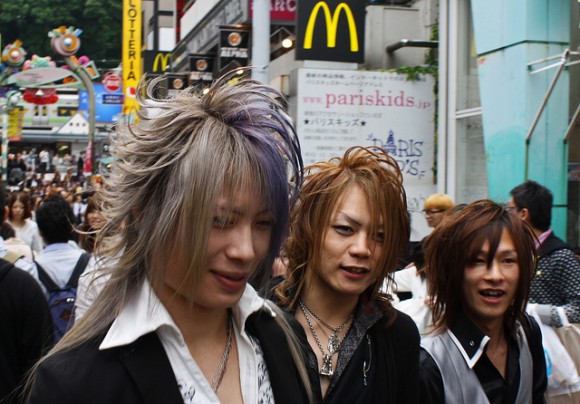

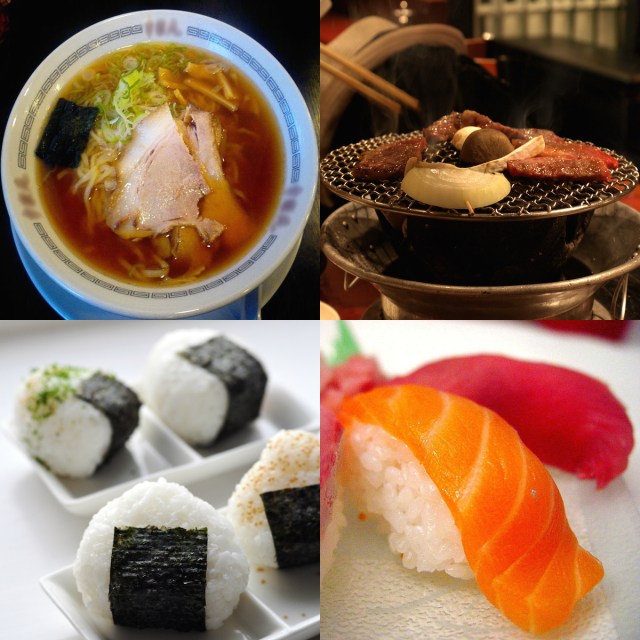


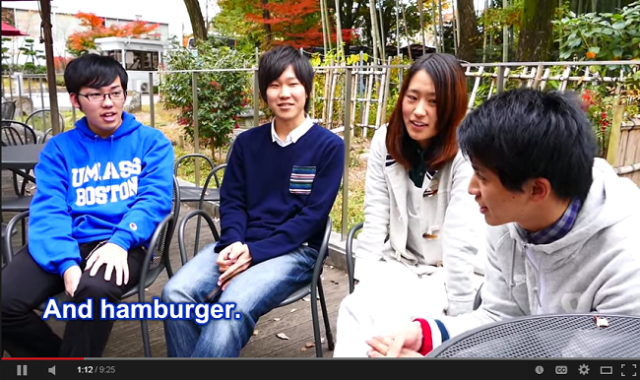
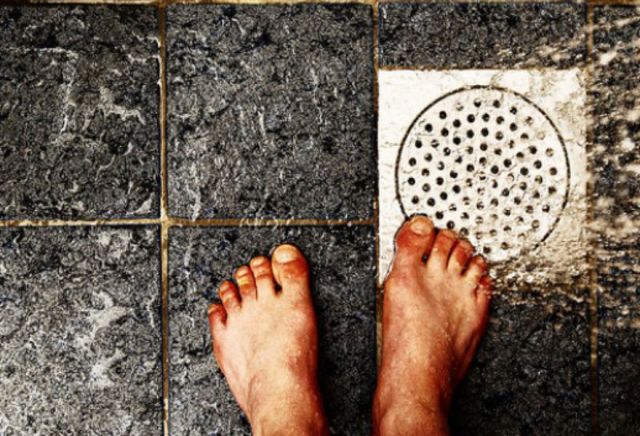
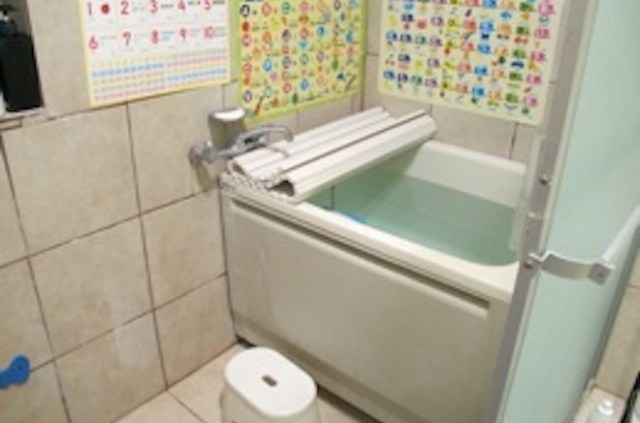

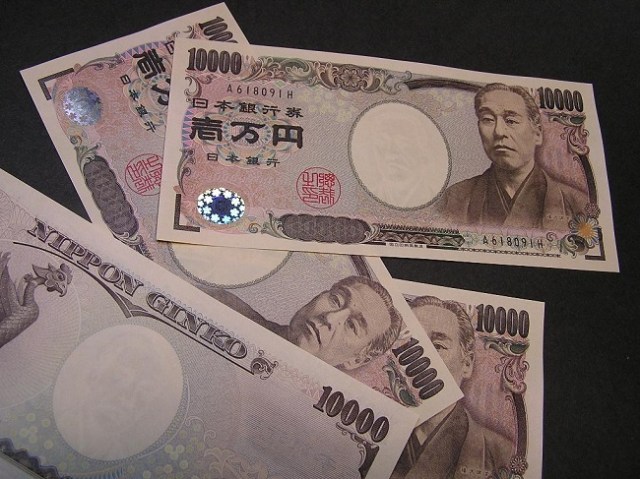



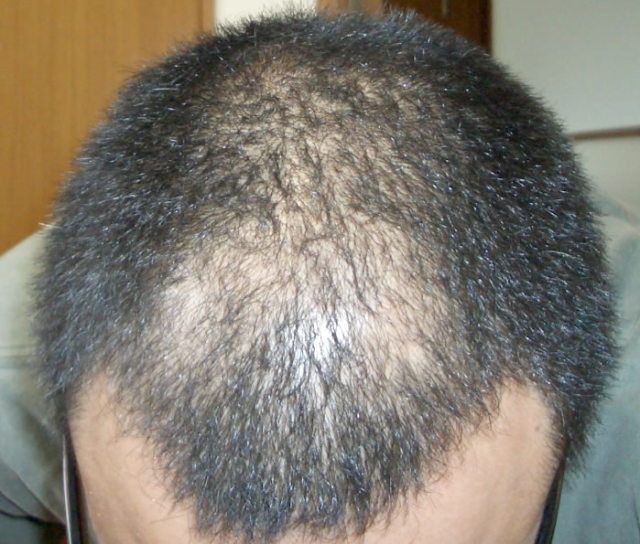
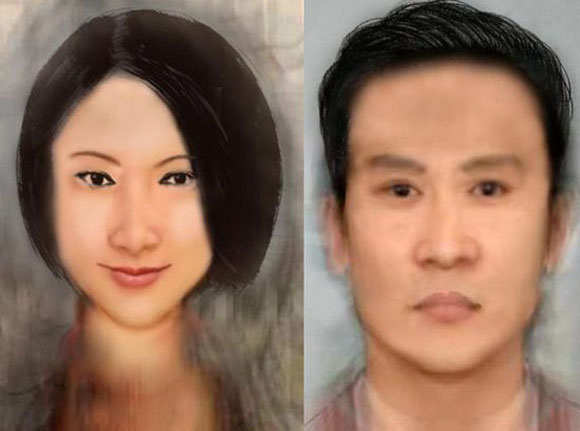


 Japan’s newest Shinkansen has no seats…or passengers [Video]
Japan’s newest Shinkansen has no seats…or passengers [Video] Foreigners accounting for over 80 percent of off-course skiers needing rescue in Japan’s Hokkaido
Foreigners accounting for over 80 percent of off-course skiers needing rescue in Japan’s Hokkaido Starbucks Japan releases new sakura goods and drinkware for cherry blossom season 2026
Starbucks Japan releases new sakura goods and drinkware for cherry blossom season 2026 Testing Japan’s fluffy mayonnaise pancake cooking hack【SoraKitchen】
Testing Japan’s fluffy mayonnaise pancake cooking hack【SoraKitchen】 Cup Noodle maker Nissin teams up with thick-broth ramen chain for instant ramen rice[Taste test]
Cup Noodle maker Nissin teams up with thick-broth ramen chain for instant ramen rice[Taste test] Paying for prostitution isn’t illegal in Japan, but it could be soon
Paying for prostitution isn’t illegal in Japan, but it could be soon The results are in! One Piece World Top 100 characters chosen in global poll
The results are in! One Piece World Top 100 characters chosen in global poll A visit to Subnade: Downtown Tokyo’s survivor subterranean shopping center【Photos】
A visit to Subnade: Downtown Tokyo’s survivor subterranean shopping center【Photos】 A look back on 40 years of Japanese schools banning stuff
A look back on 40 years of Japanese schools banning stuff Japanese city paints well-known prostitution street bright yellow, adds fish art【Video】
Japanese city paints well-known prostitution street bright yellow, adds fish art【Video】 Is China’s don’t-go-to-Japan warning affecting the lines at a popular Tokyo gyukatsu restaurant?
Is China’s don’t-go-to-Japan warning affecting the lines at a popular Tokyo gyukatsu restaurant? Three beautiful places to see Japan’s plum blossoms after starting your day in downtown Tokyo
Three beautiful places to see Japan’s plum blossoms after starting your day in downtown Tokyo Downloads of 39-year-old Guns N’ Roses song increase 12,166 percent thanks to Gundam
Downloads of 39-year-old Guns N’ Roses song increase 12,166 percent thanks to Gundam New Family Mart cinema opens inside Japanese airport
New Family Mart cinema opens inside Japanese airport Take a trip to Japan’s Dododo Land, the most irritating place on Earth
Take a trip to Japan’s Dododo Land, the most irritating place on Earth Man arrested in Japan after leaving car in coin parking lot for six years, racking up three-million-yen bill
Man arrested in Japan after leaving car in coin parking lot for six years, racking up three-million-yen bill Huge Evangelion Unit-01 head appearing in lights in Japan to celebrate anime’s 30th anniversary
Huge Evangelion Unit-01 head appearing in lights in Japan to celebrate anime’s 30th anniversary Starbucks Japan releases new drinkware and goods for Valentine’s Day
Starbucks Japan releases new drinkware and goods for Valentine’s Day Japan releases first official sakura cherry blossom forecast for 2026
Japan releases first official sakura cherry blossom forecast for 2026 Archfiend Hello Kitty appears as Sanrio launches new team-up with Yu-Gi-Oh【Pics】
Archfiend Hello Kitty appears as Sanrio launches new team-up with Yu-Gi-Oh【Pics】 China’s don’t-go-to-Japan warning looks to be affecting tourist crowds on Miyajima
China’s don’t-go-to-Japan warning looks to be affecting tourist crowds on Miyajima Studio Ghibli releases new “komorebi” plush toys from Princess Mononoke and Spirited Away
Studio Ghibli releases new “komorebi” plush toys from Princess Mononoke and Spirited Away Yokai are descending upon Tokyo this spring in the latest immersive art experience
Yokai are descending upon Tokyo this spring in the latest immersive art experience Japan’s Naruto theme park now offering real-world version of Minato’s kunai ninja weapon
Japan’s Naruto theme park now offering real-world version of Minato’s kunai ninja weapon Survey asks foreign tourists what bothered them in Japan, more than half gave same answer
Survey asks foreign tourists what bothered them in Japan, more than half gave same answer Japan’s human washing machines will go on sale to general public, demos to be held in Tokyo
Japan’s human washing machines will go on sale to general public, demos to be held in Tokyo We deeply regret going into this tunnel on our walk in the mountains of Japan
We deeply regret going into this tunnel on our walk in the mountains of Japan Studio Ghibli releases Kodama forest spirits from Princess Mononoke to light up your home
Studio Ghibli releases Kodama forest spirits from Princess Mononoke to light up your home Major Japanese hotel chain says reservations via overseas booking sites may not be valid
Major Japanese hotel chain says reservations via overseas booking sites may not be valid Put sesame oil in your coffee? Japanese maker says it’s the best way to start your day【Taste test】
Put sesame oil in your coffee? Japanese maker says it’s the best way to start your day【Taste test】 No more using real katana for tourism activities, Japan’s National Police Agency says
No more using real katana for tourism activities, Japan’s National Police Agency says Starbucks Japan reveals new sakura drinkware collection, inspired by evening cherry blossoms
Starbucks Japan reveals new sakura drinkware collection, inspired by evening cherry blossoms Paying for prostitution isn’t illegal in Japan, but it could be soon
Paying for prostitution isn’t illegal in Japan, but it could be soon The results are in! One Piece World Top 100 characters chosen in global poll
The results are in! One Piece World Top 100 characters chosen in global poll A visit to Subnade: Downtown Tokyo’s survivor subterranean shopping center【Photos】
A visit to Subnade: Downtown Tokyo’s survivor subterranean shopping center【Photos】 A look back on 40 years of Japanese schools banning stuff
A look back on 40 years of Japanese schools banning stuff Japanese city paints well-known prostitution street bright yellow, adds fish art【Video】
Japanese city paints well-known prostitution street bright yellow, adds fish art【Video】 Is a snow day the perfect day to beat the crowds at a popular ramen restaurant? [Experiment]
Is a snow day the perfect day to beat the crowds at a popular ramen restaurant? [Experiment] Sanrio changes Hello Kitty lead designer for first time in 46 years
Sanrio changes Hello Kitty lead designer for first time in 46 years Japanese video 18-Year-Old Grandpa has important, moving message behind its silly-sounding title
Japanese video 18-Year-Old Grandpa has important, moving message behind its silly-sounding title Our reporter tries nuikatsu for the first time, but is he too old for this otaku lifestyle hobby?
Our reporter tries nuikatsu for the first time, but is he too old for this otaku lifestyle hobby? Japan’s permanent Pokémon theme park zone announces grand opening date, ticket sale start
Japan’s permanent Pokémon theme park zone announces grand opening date, ticket sale start Where’s the very best seat to sit in on Japan’s Shinkansen? Our expert has an answer
Where’s the very best seat to sit in on Japan’s Shinkansen? Our expert has an answer Shimane has a secret hot spring town that feels like stepping into an old Japanese film
Shimane has a secret hot spring town that feels like stepping into an old Japanese film Site of the worst bear attack in Japanese history is a chilling place to visit
Site of the worst bear attack in Japanese history is a chilling place to visit